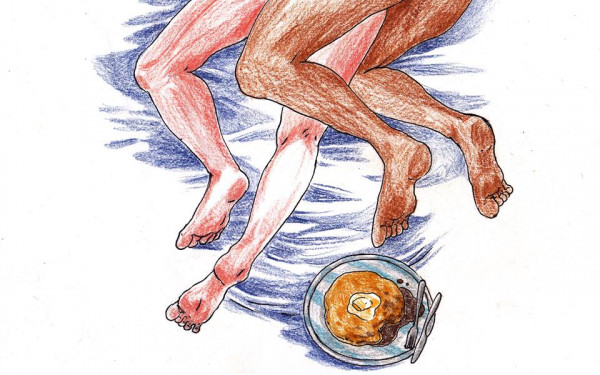Sixteen Bars Against the Tar Sands
Activists Call for Climate Justice Through the Mouthpiece of Rap
Climate Justice Montreal is throwing the Rap Battle Against the Tar Sands on March 28, 8 p.m. at La Vitrola on St. Laurent Blvd.
Local rappers, slam poets and activists will be performing original verses against the tar sands, and donations will go towards Aamjiwnaang and Sarnia Against Pipelines, an environmental activist group in Ontario.
In preparation for the event there will be a rap and climate justice workshop focusing on the links between climate change, social justice, tar sands and pipelines, while empowering attendees to speak up through the medium of hip-hop.
Check it out on March 16 at 6:30p.m., in room H-1267 of the Hall building. For the battle CJM has invited Zach Sherwin, a rapper who portrayed Stephen King and Sherlock Holmes on the YouTube series Epic Rap Battles of History, to play the role of a TransCanada lobbyist promoting tar sands pipeline projects Energy East and Keystone XL. Expect other satirical performances too.
This is not the first time hip-hop has been used as an arena for combat between different perspectives on climate change and fossil fuel consumption. NASA produced a rap where they raise awareness about the effects of climate change: “For real, all it takes is a couple degrees/Before floods, droughts, and hurricanes are not anomalies/And all these catastrophes become our new realities.”
While the subject of NASA’s rap is worthy of admiration, largely because it raises awareness about climate change, the song is reminiscent of the cheesy public service announcement rap, Don’t Copy That Floppy. Plus, the song ends with a focus on false solutions: merely changing individual consumption habits and promoting green technology.
In contrast, Canadian artist Haidawood denounces the Northern Gateway pipeline proposal from an indigenous perspective in A Message to Stephen Harper. “Searching through my soul trying to find the right flow/ To tell the truth, I can feel it now the fight’s close/ Sorry kids it’s not enough to just recycle/ Have to go psycho about where the pipe go.”
Based in Haida Gwaii in so-called British Columbia, Haidawood argues that simply recycling is a false solution, showing how individual consumption does not affect the root causes behind climate change and, in this case, the destruction of ancestral territory teeming with flora and fauna. On the local and international level, blocking Big Oil’s ecocidal plans is the way to go.
The NASA rap also neglects to point out how there are unequal burdens resulting from climate catastrophes; those who are economically marginalized, especially indigenous people and the people of the Global South, will suffer more than the affluent and privileged classes. The Dead Prez song “When the Lights Go Out” shows exactly how people of colour are impacted unequally when climate disasters strike: “What did we learn from Katrina?/I hope you can swim if you’re waiting on FEMA.” M-1 from Dead Prez is dropping a verse by video at the Battle on March 28.
Environmentalists, whether they write, rant or chant about climate change and green solutions, need to be aware of how privilege based on race, class and nationality will greatly determine which communities will face the brunt of the climate chaos that is predicted to occur if most of the world’s carbon isn’t left underground. Hip-hop has always played a pivotal role in reminding us of the race relations and unfair class divisions that impede us from making the systemic changes necessary to move society forward in a truly equitable way. Public Enemy made this loud and clear in “Fight the Power.”
A future where the Global South, indigenous peoples and the economically oppressed are spared from the terrors of climate change simply cannot occur without system change. Toronto-based rap duo Test Their Logik state this unequivocally in “Be”:
“Resource wars get started often/ Drilling, fracking, dig our coffin/ Spills attack and kill our oceans/ […] Food monopolies keep billions starving/ Sweatshop slavery stitching cotton/ Murder king coal keeps releasing carbon/ Chemical plants got the people coughing/ […] Decolonize the land where you stand is stolen/ […] Against the bankers NWO’in/ Capital the cancer that can’t keep growing.”
Hip-hop offers hope. A head-bobbing lyrical flow can help the people mobilize to stop the pipeline flow. An emcee’s delivery can landlock the tar sand bitumen in a more permanent way, and maybe inspire other activists to do the same.
This is what the Rap Battle Against the Tar Sands is all about. Reach us at slamthetarsands@gmail.com if you’re down to drop a verse and take the pipelines down. Keep it underground (the carbon, that is.)
Dan Parker is a Climate Justice Montreal Organizer at this event.

_900_750_90.jpg)



